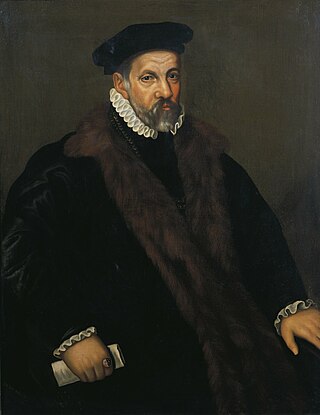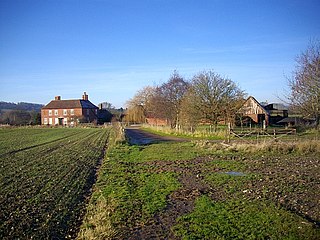Related Research Articles

William Paget, 1st Baron Paget of Beaudesert, was an English statesman and accountant who held prominent positions in the service of Henry VIII, Edward VI and Mary I. He was the patriarch of the Paget family, whose descendants were created Earl of Uxbridge (1714) and Marquess of Anglesey (1815).
Thomas Woolston was an English theologian. Although he was often classed as a deist, his biographer William H. Trapnell regards him as an Anglican who held unorthodox theological views.

Humphrey Prideaux was a Cornish churchman and orientalist, Dean of Norwich from 1702. His sympathies inclined to Low Churchism in religion and to Whiggism in politics.
Thomas Usk was appointed the under-sheriff of London by Richard II in 1387. His service in this role was brief and he was hanged in the following year.

The House of Clare was a prominent Anglo-Norman noble house that ruled the Earldoms of Pembroke, Hertford and Gloucester in England and Wales throughout its history, playing a prominent role in the Norman invasion of Ireland.

Thomas Wilson (1524–1581), Esquire, LL.D., was an English diplomat and judge who served as a privy councillor and Secretary of State (1577–81) to Queen Elizabeth I. He is remembered especially for his Logique (1551) and The Arte of Rhetorique (1553), which have been called "the first complete works on logic and rhetoric in English".

The Surrey Institution was an organisation devoted to scientific, literary and musical education and research, based in London. It was founded by private subscription in 1807, taking the Royal Institution, founded in 1799, as a model. The Institution lasted only until 1823, when it was dissolved.

Thomas Thynne was an English landowner of the family that is now headed by the Marquess of Bath and politician who sat in the House of Commons from 1670 to 1682. He went by the nickname "Tom of Ten Thousand" due to his great wealth. He was a friend of the Duke of Monmouth, a relationship referred to in John Dryden's satirical work Absalom and Achitophel where Thynne is described as "Issachar, his wealthy western friend".
The Octavians were a financial commission of eight in the government of Scotland first appointed by James VI on 9 January 1596.

Roger fitzReinfrid was a medieval English sheriff and royal justice. Probably born into a knightly family, Roger first was in the household of a nobleman before beginning royal service. His brother, Walter de Coutances, was a bishop and archbishop and likely helped advance Roger's career. Besides holding two sheriffdoms, Roger was entrusted with the control of a number of royal castles.

Henry Bright was a clergyman and schoolmaster in Worcester. He served for 38 years Headmaster at The King's School, Worcester, and is mentioned by Thomas Fuller and Anthony Wood as an exceptional teacher, particularly of Latin, Greek and Hebrew. The period was at the height of Neo-Latin writing and Latin medium teaching. Many of his pupils are notable for their faculty in Latin and Greek and their impact on theological matters.
Sir Edward Hungerford, was a soldier and courtier in the court of King Henry VIII of England who was present at the Field of the Cloth of Gold in 1520.
Osmund Airy (1845–1928) was an English historian who specialised in early modern Great Britain and Ireland and especially Charles II and the Restoration.
John Rea was an English nursery gardener and writer.
John Ranby (1743–1820) was an English pamphleteer, known for his anti-abolitionist writings. James Boswell interpolated in his Life of Johnson a reference to Ranby, his "learned and ingenious friend", as a pendant to Samuel Johnson's expressed wish for the abolition of slavery, stating that Johnson was poorly informed.
Oliver Bowles was an English Presbyterian minister and divine.
Thomas Potts was an English law clerk, and the author of the Discoverie of Witches.
Sir Henry Spigurnel was an English judge. He was summoned to parliaments of Edward I and Edward II, and was made a justice of oyer and terminer in 1300. He was sent on a mission to papal court in 1311 and interpreted the ordinances in 1312. He retired in 1327, and died the next year.